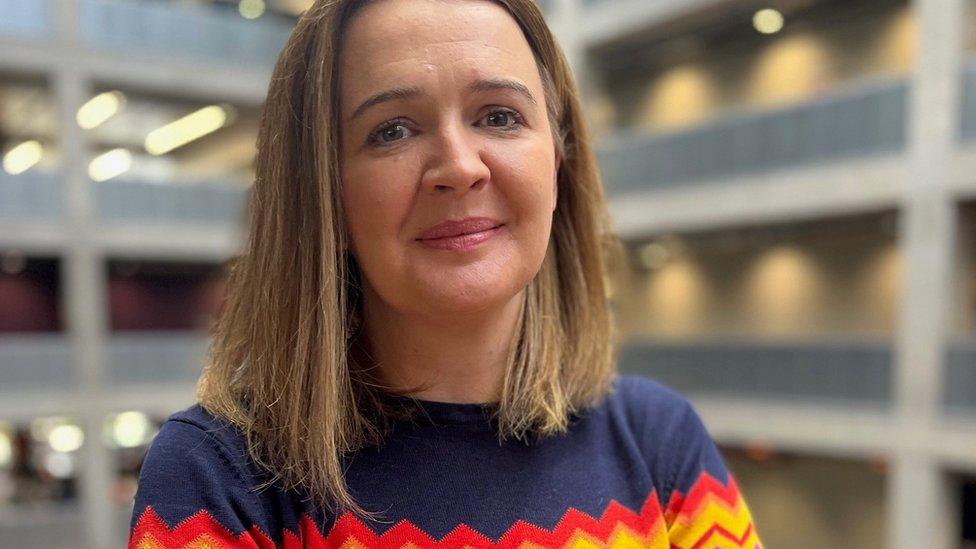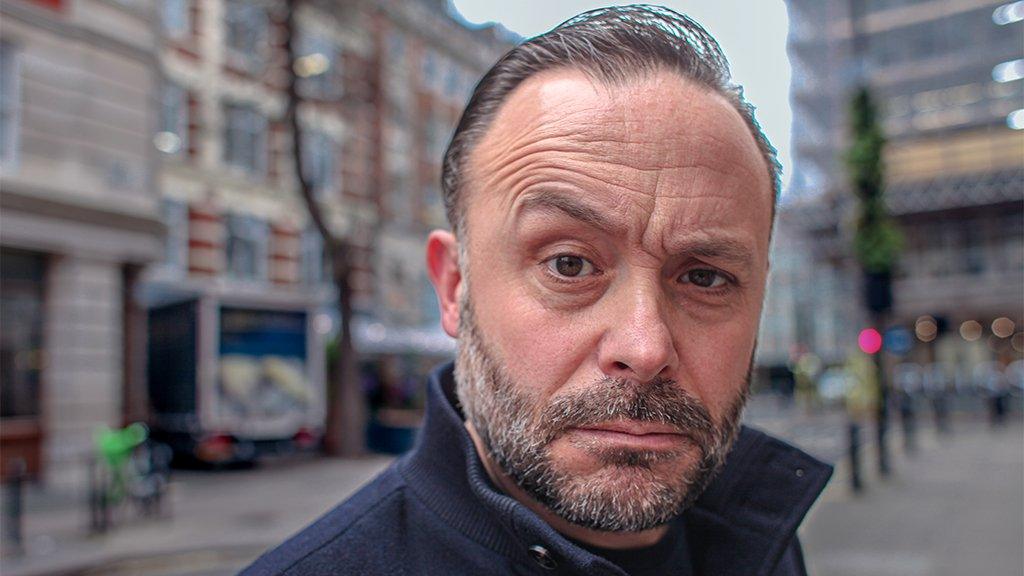Student loans: UK's highest debt revealed to be £231,000
- Published

The highest outstanding student debt in the UK is more than £230,000, data obtained by BBC News reveals.
The largest repayment a graduate has made tops £110,000, the figures show, with another loan holder accumulating interest alone of nearly £55,000.
The data was released by the Student Loans Company (SLC) following a BBC Freedom of Information (FOI) request.
SLC says graduates in England leave university with average debts of £44,940.
One student organisation called the figures "truly eye-watering" and the National Union of Students (NUS) suggested they raised questions about the university funding system.
However, the most extreme cases were "highly unusual", said Ben Waltmann, an economist at the Institute for Fiscal Studies, adding that the highest debts "won't be representative at all of most graduates' experience".

BBC News used an FOI request to ask the SLC for the highest amount of student debt owed by a single person, for the various types of student loan plans, external.
The amount graduates repay and the length of their loan varies from plan to plan, depending on when and where they went to university, and their degree type.
The FOI also asked for the most interest accumulated on a loan, the highest amount of "non-compliance interest" (NCR), and the largest amount repaid in full.
It did not ask for details about the individual loan holders' circumstances. However, the person with the highest debt - £231,000 - is known to have studied "multiple courses".
The graduate who repaid more than £110,000 received six years of funding and repaid their loan in full.
The highest level of interest accumulated was around £54,050, while the largest amount of NCR accrued topped £17,500.

Dr Luke Amos has student debt of more than £103,000
Dr Luke Amos, a junior doctor based in Surrey, said his student debt "became almost a joke when I saw the outstanding balance break the £100,000 barrier."
"You almost become de-sensitised to how big the number is getting, although it still shocks friends and family," he said.
The 27-year-old - who started a three-year course in 2015, followed by a four-year medical degree - told the BBC: "I have no hope of paying off the loan in full, it would take considerable expense to pay off a penny more than the interest, to make even the smallest dent in the outstanding amount."

It is nearly 15 years since tuition fees were tripled in England. Fees now cost a maximum of £9,250 per year across all UK nations, though in Scotland, Scottish students are charged a maximum of £1,820. Debts are written off at the end of loan terms - often 30 years - regardless of how much is owed by that point.
The highest outstanding debt and largest amount of interest and NCR are on 'Plan 2' loans, brought in from 2012 by the coalition government.
Plan 2 loan holders now pay 9% of their income above £27,295 towards repayments, external - leading some to characterise the debt as more like a 'graduate tax'.
Dr Amos, who graduated in 2022, added that this tax year had seen him accrue £5,900 in interest on the loan - while he paid off just £1,000 of his more than £103,800 balance.
But his debt is less than half of the biggest balance known to the SLC.
In 2021, according to the Guardian, external, the largest student debt amassed was £189,700. In September 2023, the i newspaper reported, external that at least 8,000 people on Plan 2 loans owed more than £100,000.
The SLC says it does not know what the largest debt a graduate could theoretically accumulate is - or the largest amount one person could repay.
It said around 1.5 million loan applications are processed each year, which will include new and returning students.
A spokesperson said: "These exceptional balances are a function of government policy that in certain circumstances exempts specific courses from repeat study restrictions, permits funding for additional years of study, and results in SLC awarding additional years of funding when an individual demonstrates compelling personal reasons."
Nick Hillman, the director of the Higher Education Policy Institute (HEPI), told the BBC the £231,000 debt was "extraordinarily high". He said he had never "seen figures like this before" in 15 years working in higher education.
On the "penalty interest" (NCR), Mr Hillman added: "There are questions to be asked about such a high figure. It's not quite having the deterrent effect it is designed to have."
'Indictment of our education system'
A spokesperson for website Save The Student, external described the wider figures as "truly eye-watering", while the NUS argued the statistics were "an indictment of our education system".
Chloe Field, its vice president of higher education, said: "The UK cannot pretend that university is accessible to everyone when there is the possibility of students incurring over £200,000 worth of debt."
She added that student debt "discourages people from working class backgrounds from going to university".
A Department for Education spokesperson said a "sustainable student finance system" fair to students and taxpayers was "vital".
"We've taken action to protect students from high costs by freezing tuition fees for the 2023/24 and 2024/25 academic years", they said.
"Our reforms also mean that under the new repayment plan, no new graduate will pay back more than they originally borrowed when inflation is taken into account, and those who earn less than the repayment threshold will not have to make any repayments."

Are you affected by the issues raised in this story? Share your experiences by emailing haveyoursay@bbc.co.uk, external.
Please include a contact number if you are willing to speak to a BBC journalist. You can also get in touch in the following ways:
WhatsApp: +44 7756 165803
Tweet: @BBC_HaveYourSay, external
Please read our terms & conditions and privacy policy
If you are reading this page and can't see the form you will need to visit the mobile version of the BBC website to submit your question or comment or you can email us at HaveYourSay@bbc.co.uk, external. Please include your name, age and location with any submission.
Related topics
- Published2 November 2023

- Published9 January 2024

- Published28 September 2023

- Published21 February 2024

- Published11 March 2024


